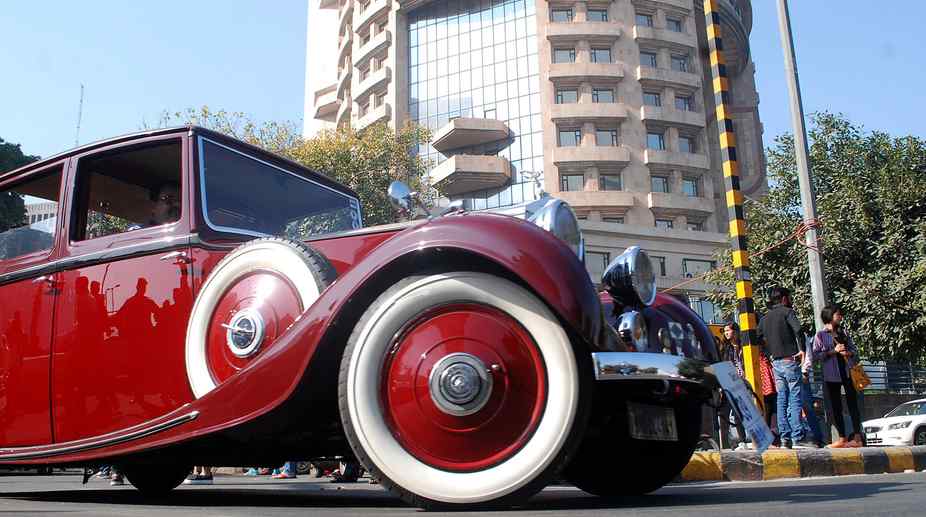Soumya Vishwanathan murder: SC notice on plea against bail to convicts
The apex court gave both the Delhi government and the four convicts four weeks’ time to file their response.

(Photo: Subratta Dutta/SNS)
Reboti Bhushan Ghosh! The name rings a bell! No New Delhi Notebook, as it was known then, was complete without a sketch by him. He was employed as an expert artist in Shankar’s Weekly in Bahadur Shah Zafar Marg, but every evening, while going back home, would drop in at The Statesman office in Barakhamba Road to find out what sketches were needed for it and the fortnightly Indian Notebook.
An old, diminutive man, carrying a heavy leather bag containing his drawing material, he kept up the practice for years, until he decided to call it a day at the age of 75 and go back to Bengal after grooming one’s son, Tony.
Ghosh was born on the banks of the Padma, from where the East Wind (Purabia) blows in summer, and after Partition his family settled down in a cottage in West Bengal on the side of a stream. It was to that ideal house that Ghosh retired. Had he lived he would have been a centenarian now.
Advertisement
The concept of a weekly Notebook was started by James Cowley as editor of the paper, both in Delhi and Calcutta, and after his retirement it was A E Charlton and P W J Crosland who looked after the Monday feature. When AEC, as he was known, used to come from Calcutta, after taking over as chief editor, he would always write a Notebook para to announce his arrival and what happened during the course of his train journey.
Cowley, meanwhile, started writing the London Notebook, which he finally handed over to Sunanda K-Datta-Ray, before the latter took over as editor. But it’s Reboti Bhushan Ghosh who always comes to mind whenever one glances through the Notebook.
Bhabiji at home?
Would you believe it, long before the popular TV soap, Bhabi ji Ghar Par Hain!, it was Ruskin Bond, who had visualised something like that? The writer was staying in Patel Nagar in the 1960s and, according to Anslay Whelpdale, could be seen cycling along with his brother, William Bond, through Link Road, adjoining Pusa Road.
Ruskin’s favourite spots (besides the Lutyens’ “LBZ” zone) were the Red Fort, Chandni Chowk and Chawri Bazar, where the ubiquitous Bhabiji used to stay. He would knock at the old house and call out, “Bhabji Ghar Par Hain?” and Bhabiji immediately responded, “Aao aao (come, come). I’ve found a good match for you.” She kept doing so even until Bond had become a confirmed old bachelor.
Ansley, a teacher in St Xavier’s School, would cycle down from the Civil Lines to Patel Nagar every evening, where he was courting his future wife, a divorcee with two kids. He did get married to her and then went away to Canada but his tales of Ruskin Bond still come to mind, no matter how true they were, whenever one watches the TV show.
The erstwhile Bhabiji of Chawri Bazar couldn’t have been as glamorous as the earlier and currently portrayed TV Bhabijis, far removed from the old world ambience of the Walled City, revelling in their modern-day flats. But do spare a thought for Mr Bond’s forays in Delhi before he decided to settle down on top of the world in Landour Cantt, Mussoorie.
Quick reply
Various online sites have given everyone diverse humorous content in many forms. And perhaps reading them has led the younger generation to develop a quick, improvisational sense of humour. This is an indicator that even though the medium of sharing jokes may have changed, humour is still intact among us. Especially the youngsters, who are continuously exposed to such humorous content, can tickle anyone’s funny bone in real conversations as well. Recently, a colleague, who was attending a family function, witnessed one such funny conversation.
As he was busy in some routine chores, he overheard a grandfather and his granddaughter having a “cute” talk. The little girl climbed on to her grandfather’s lap and asked, “Did God make me?” “Yes,” the grandpa replied. She further asked, “Did he make you, too?” “Yes,” he nodded. “Well,” the girl said, looking at his wrinkles and thinning hair, “He sure is doing a better job nowadays!” Obviously, the old man had no reply.
Tailpiece
An old-timer quipped that Delhi government’s “Green Budget” is mere populism in another colour.
Contributed by: R V Smith, Alpana Bhaumik, Kunal Roy and Asha Ramachandran
Advertisement